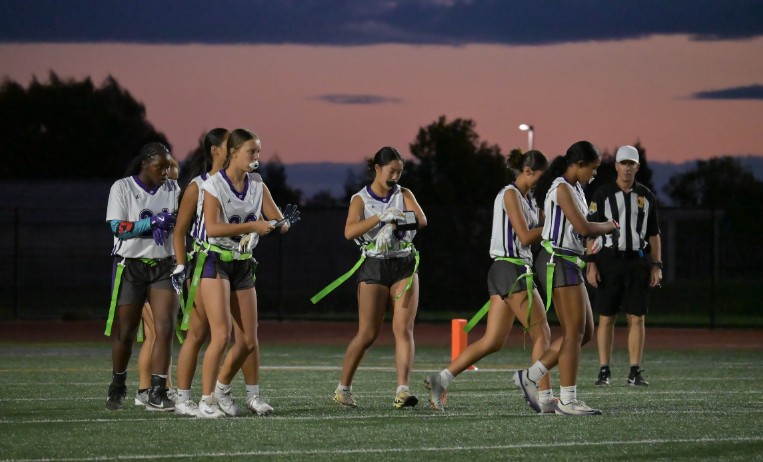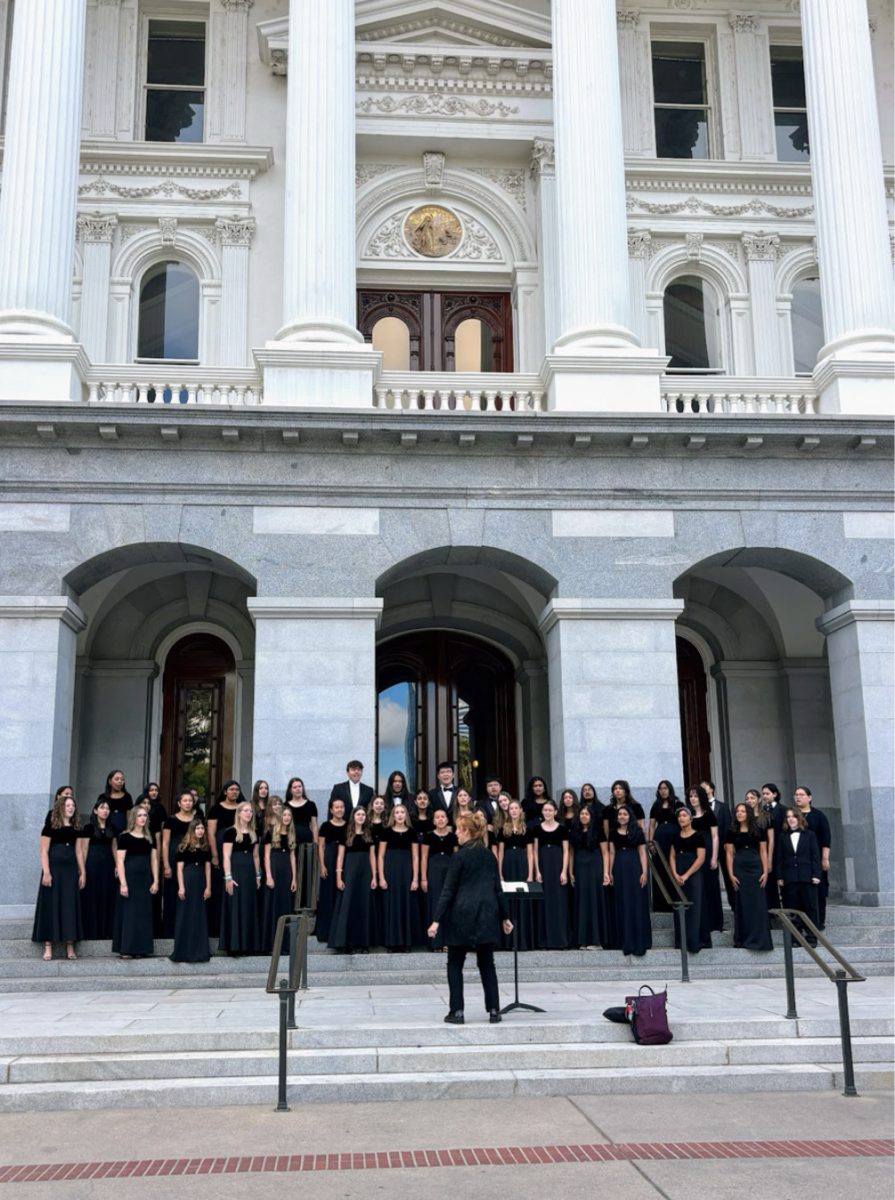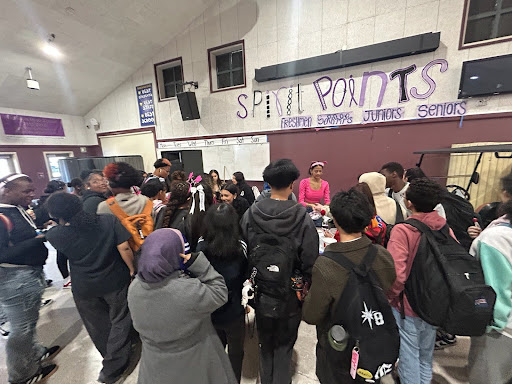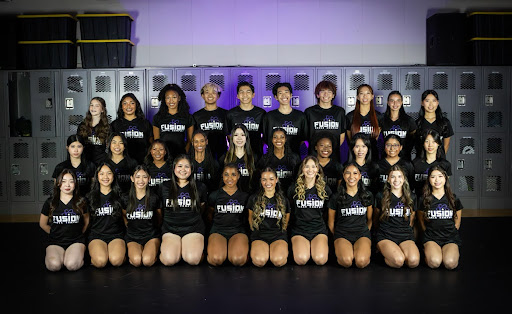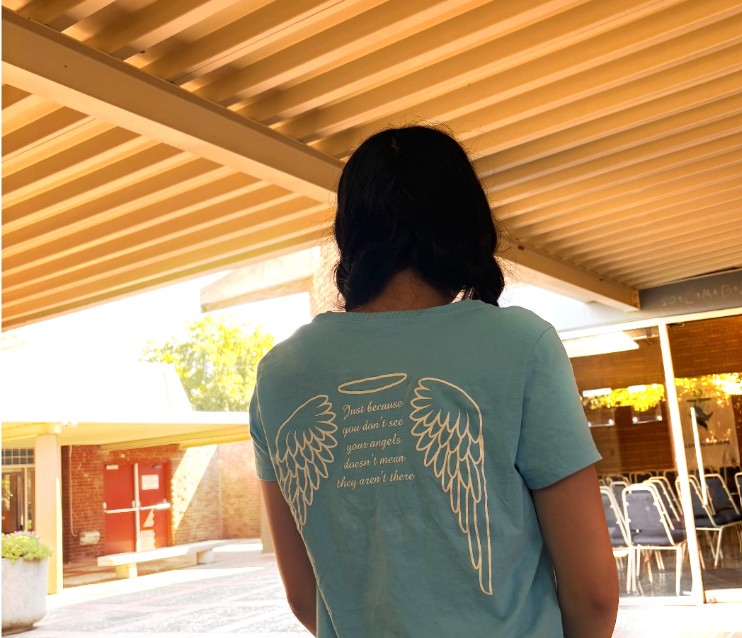Female athletes have often been given less recognition and support for their efforts and have often been undermined and underestimated by male athletes. However, in a seemingly “male-dominated” field, many female athletes use this struggle to work harder.
According to the 1972’s Title lX, “‘No person in the United States shall, on the basis of sex, be excluded from participation in, be denied the benefits of, or be subjected to discrimination under any education program or activity receiving federal financial assistance.’”
Despite this gender equity law, female athletes still face sexism – some complain they are told that they should let men play sports instead of women, are accused of not working as hard as men and, professionally, get paid less than men.
Female athletes from Cosumnes Oaks, Sheldon, and Franklin high schools say they relate to the struggle females still endure, but instead of viewing it as a set-back to their athletic careers, the opposition motivates them.
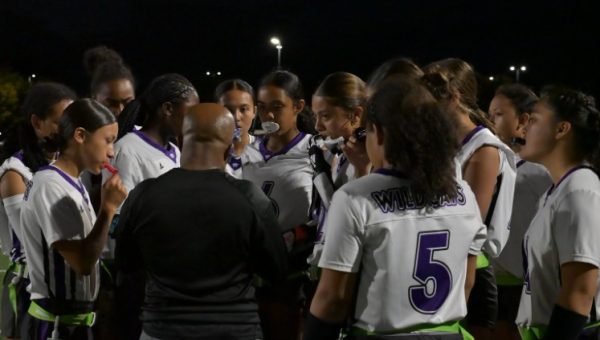
Ron Leslie, the girl’s flag football and basketball coach at Franklin, has seen more recognition of female athletes evolve over the past decade.
“When I started coaching, female sports were only talked about if you had a daughter or relative involved,” he said.
Apart from male athletes, Leslie sees unique strengths solely from female athletes.
“I think their overall toughness is underrated and maybe slightly more elevated than the guys,” he said. “The girls I’ve coached seem to play through illness, injuries, school issues and personal developments at home, a little better than the fellas.”
Noticing a lack of focus and leadership for female athletes, Leslie took the initiative to coach young women.
“When the opportunity to coach females was presented, I felt it was my duty,” he said. “There isn’t a shortage of coaches for most male-dominated sports, but there’s a huge gap for female youth. Currently there still isn’t much glory or resume padding from coaching females.”
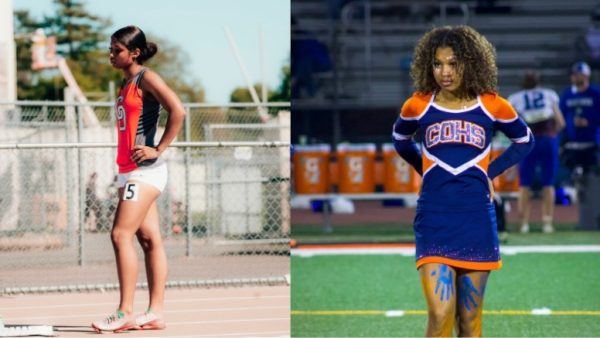
Angelina Ross, a senior at Cosumnes Oaks High, has been cheering for four years and running track for three. As a female athlete, Ross has felt dismissed at times by coaches in both sports.
“Especially in track, there was definitely a higher interest from previous coaches in the boys over the girls,” Ross said. “In cheer, I feel like overall many people overlook it as a sport, which is frustrating considering the amount of dedication me and many others have to the team.”
Ross said she is disappointed with how female athletes are often treated.
“I’ve had to accept that there is an indifference that many people feel toward girls in sports,” she said. “I have felt like there is a lack of respect for cheerleading in general, and as a female athlete, I do believe it is a sexist notion.”
Specifically as a cheerleader, Ross is certain that the view of cheerleading would’ve been different if it was more male dominated. In addition, cheerleaders don’t get buses or storage for their supplies on game days.
“The amount of athleticism needed to be a good cheerleader is not minimal,” she said. “There are male-dominated sports that require much less athleticism that are still classified as a sport, whereas cheerleaders have constantly had to try to validate that cheer is a sport. If cheer was male dominated, it would’ve been considered a sport from the get-go.”
Ross said she hopes that, in the future, attention paid to female athletes will increase.
“I hope that in the next couple years female athletes continue to be able to impress everyone and get the recognition that they deserve,” Ross said. “We live in a society where women have always been treated as ‘less than.’ ”
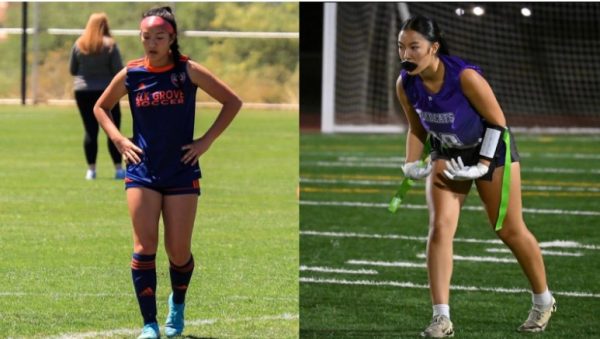
Madelyn Chau, a senior who has played soccer for nine years and girls’ flag football for one, used the struggle of always being compared as an advantage.
“I have most definitely been treated differently compared to how the boys were treated on their team,” Chau said. “Although this may seem like a favor, they would give me extra time to learn different moves and soccer IQ because they believed I couldn’t learn it as fast as the boys could. Every mistake was dismissed when I should’ve been pushed and motivated the same way the boys were.
“I was able to learn how to use my voice to express my opinions on how I believe we should all be treated equally, but based on circumstances – honest truth, some girls cannot handle the pressure the way boys do but in this situation, (but) I could’ve.”
With some women’s sports arguably starting to gain more attention, Chau said she is excited about the trend.
“The media is starting to give women’s sports the credit they deserve knowing that most stats from women’s games are better than the men’s side of their specific sport,” she said.
Chau said attention for female athletes is critical for future representation.
“It’s important … to demonstrate to future generations that anything is achievable without the thought of social barriers such as sexism,” she said. “It’s important to have a future where recognition is served equally without the main thought and motive of profit. Of course male athletes work extremely hard as well, but male athletes are praised for their work ethic when women put in the same amount of time and don’t receive any praise.”
Chau is holding out for equal treatment for male and female athletes.
“Hopefully in the next couple of years, female sports will start to advance and get more positive coverage online,” she said. “Everyone in professional sports works extremely hard to get there and in knowing that, everyone should be recognized equally.”
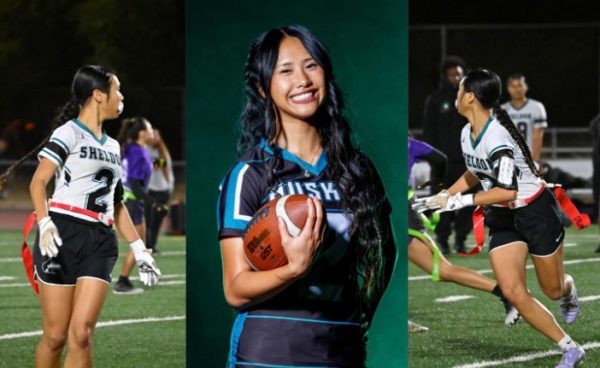
Calista Pham, a junior at Sheldon High, has been playing multiple sports over the years, such as flag football and cross country for one year, track since middle school and basketball for a couple of years.
Over time, Pham experienced challenges of not only being a female athlete, but also an Asian-American athlete.
“In track, I often heard the phrase ‘you’re faster than I thought,’ often came from boys at my school and gave the impression that people believed that I wasn’t capable of being fast or athletic,” she said. “These stereotypes put me in a box. Not only being a female athlete, but also being an Asian-American athlete, I was often overlooked and undermined, so much so that my coach often referred to me as an ‘underdog.’ My coach pushed me and would always remind me that I deserve to be in the spot that I was in. ”
However, instead of backing down or quitting, Pham used that as an opportunity to work harder.
“Although I was different from what others believed to be the stereotypical athlete, I wasn’t any less capable of achieving the same success,” she said. “I never let these comments put me down, but rather push me to move on and up .I trained hard to overcome the stereotypes put above my head and, as a friend once told me, ‘train more than people speak,’ meaning to override the opinions of others by putting in the countless hours behind the scenes in order to prove them otherwise.”
Noticing a visible shift in media covering women’s athletics more, Pham is thrilled about it.
“I’ve noticed a big shift in how women’s sports are being talked about and supported,” Pham said. “Many aspiring, famous female athletes have brought huge attention to women’s sports and inspired younger girls to compete confidently. Social media has also helped female athletes gain platforms to share their stories and highlight their achievements.
“Even though there’s still progress to be made, it’s empowering to see women finally getting more of the respect, media coverage and opportunities that they’ve always deserved.”
Pham said the work ethic of female athletes is something that isn’t talked about much.
“Female athletes do not put in any less effort than a male athlete,” she said. “Male athletes overshadow … female athletes, when behind the scenes the training, the blood, sweat, and tears is all the same no matter the gender of the athlete that has shed it. Women in athletics continue to put in the work not only physically, but mentally in order to overcome the standard set upon them. Female athletes are not just strong or fast, but resilient and dedicated. We do not give up in the face of adversity and will continue to persevere through the challenges thrown our way.”
In the future, Pham said she hopes to inspire younger girls.
“I want to continue pursuing athletics and representing women in my sports in hopes of paving the way for younger generations and encouraging them to step outside their comfort zone and to challenge themselves even if it goes against what others expect them to be capable of,” Pham said. “I hope that young girls are encouraged to try out all the sports they dream of and know that they are allowed to do anything a boy can.”



